IMDb RATING
7.4/10
6.3K
YOUR RATING
The history of the independent film company, The Cannon Film Group, Inc.The history of the independent film company, The Cannon Film Group, Inc.The history of the independent film company, The Cannon Film Group, Inc.
Menahem Golan
- Self - Cannon Chairman
- (archive footage)
Itzik Kol
- Self - Production Executive
- (archive footage)
Roni Ya'ackov
- Self - Production Executive
- (as Rony Yakov)
Yftach Katzur
- Self - Actor
- (as Yiftach Katzur)
- Director
- Writer
- All cast & crew
- Production, box office & more at IMDbPro
7.46.3K
1
2
3
4
5
6
7
8
9
10
Featured reviews
8cafm
An uproarious, celebratory, melancholy romp...
Mark Hartley, the man behind the wildly entertaining documentaries about B-grade films and filmmakers, Not Quite Hollywood (2008) and Machete Maidens Unleashed (2010), premiered his latest and, sadly, last documentary - Electric Boogaloo: The Wild, Untold Story of Cannon Films - in the opening weekend of the 2014 Melbourne International Festival (MIFF).
As with Hartley's previous documentaries, the story at the heart of Electric Boogaloo (its name taken from the film, "Breakin' 2: Electric Boogaloo", the strange sequel to the hit 1984 rap dancing film, "Breakin'") cleverly unfolds through the skillful editing together of myriad eyewitness talking heads and interspersing these with clips from relevant films along with some wonderfully tongue-in-cheek animations. Essentially, Hartley's latest film explores the story behind Cannon films from its inception to its ultimate demise, following the weird and wild careers of crazy Israeli cinephiles-cum-directors-cum-producers-cum-Hollywood B-grade movie moguls, Menahem Golan and Yoram Globus. Theirs is an extraordinary rags-to-riches- rags story and one well worth seeing for yourself. Hartley has a rare gift for storytelling in his documentaries, bringing together a complex panoply of opinions, rants, scathing criticism and fond remembrances, and weaving these all together into a taut, laugh-out-loud, highly entertaining film, and Electric Boogaloo is no exception, as demonstrated by the very enthusiastic reception the film received from the audience at MIFF.
For film lovers and those who grew up with the Golan/Globus catalog in the 1980s with films like Missing in Action, Lifeforce, Treasure of the Four Crowns, American Ninja, Break Dance, Death Wish 2 and its sequels, Masters of the Universe, The Last American Virgin, Cyborg, Superman IV: The Quest for Peace ... the list goes on, and on, and on ... this film is pure joy and something of a nostalgia trip. In this regard the film does have a sad side as it follows how the dreams of Golan and Globus would eventually fizzle up in bankruptcy and acrimony, leaving behind a library of impossibly bizarre creations that are truly weird and wonderful. Electric Boogaloo will no doubt prompt you to want to revisit many of these titles or discover others for the first time. I suspect that, being a true lover of B movies, this is ultimately one of Hartley's aims.
As with Hartley's previous documentaries, the story at the heart of Electric Boogaloo (its name taken from the film, "Breakin' 2: Electric Boogaloo", the strange sequel to the hit 1984 rap dancing film, "Breakin'") cleverly unfolds through the skillful editing together of myriad eyewitness talking heads and interspersing these with clips from relevant films along with some wonderfully tongue-in-cheek animations. Essentially, Hartley's latest film explores the story behind Cannon films from its inception to its ultimate demise, following the weird and wild careers of crazy Israeli cinephiles-cum-directors-cum-producers-cum-Hollywood B-grade movie moguls, Menahem Golan and Yoram Globus. Theirs is an extraordinary rags-to-riches- rags story and one well worth seeing for yourself. Hartley has a rare gift for storytelling in his documentaries, bringing together a complex panoply of opinions, rants, scathing criticism and fond remembrances, and weaving these all together into a taut, laugh-out-loud, highly entertaining film, and Electric Boogaloo is no exception, as demonstrated by the very enthusiastic reception the film received from the audience at MIFF.
For film lovers and those who grew up with the Golan/Globus catalog in the 1980s with films like Missing in Action, Lifeforce, Treasure of the Four Crowns, American Ninja, Break Dance, Death Wish 2 and its sequels, Masters of the Universe, The Last American Virgin, Cyborg, Superman IV: The Quest for Peace ... the list goes on, and on, and on ... this film is pure joy and something of a nostalgia trip. In this regard the film does have a sad side as it follows how the dreams of Golan and Globus would eventually fizzle up in bankruptcy and acrimony, leaving behind a library of impossibly bizarre creations that are truly weird and wonderful. Electric Boogaloo will no doubt prompt you to want to revisit many of these titles or discover others for the first time. I suspect that, being a true lover of B movies, this is ultimately one of Hartley's aims.
Hugely entertaining look at a time when B movies were so much fun
I remember pretty clearly the Cannon Films logo and its distinctive loud crashing sound accompaniment that introduced so many films I watched on video in my teenage years in the 80's. I never really thought too much about it until now, having seen this wildly entertaining documentary about these B movie mavericks. A few years ago I saw another similarly fun documentary about specific genre films, Machete Maidens Unleashed, a film also helmed by the same director Mark Hartley. Well, he sure has a knack for these things because this one follows a pretty similar template where we get to hear anecdotes from a large selection of people who were involved in the making of these flicks and, better still, many clips from a wide ranging assortment of the crazy, fun and stupid movies that Cannon became famous for. They were run by two Israelis Menahem Golan and Yoram Globus (neither of whom appeared in the documentary deciding in true Cannon style to make their own documentary on the subject simultaneously).
Their main decade was the 80's where they unleashed a huge number of low budget movies from horror to sexploitation to action and dance movies plus a whole lot in between. They were mainly known to be purveyors of schlock entertainment and with good reason as, despite releasing some acclaimed films and working with some important directors such as John Cassavetes and Jean Luc Godard, they were in the main responsible for straight-ahead genre pictures. Their films have a refreshing absence of any political correctness whatsoever and often feature copious amounts of nudity and violence, quite often at the same time as in the case of some notorious films in their catalogue such as Death Wish II (1982). Other times they featured laughably bad special effects like can be seen in Hercules (1983), some were blatant bandwagon jumpers like the hip hop dance film Breakin' (1984), they also released the notoriously sexy Bo Derek vehicle Bolero (1984) which so outraged MGM who had set up a distribution deal with them, they released the very silly sequel The Texas Chainsaw Massacre 2 (1986), while some of their output simply defies description like the extremely strange and silly musical The Apple (1980). They made many Charles Bronson and Chuck Norris vehicles; they discovered Jean Claude Van Damme and Dolph Lundgren and gave a platform for cult directors like Tobe Hooper to make movies. Things only started to go wrong in 1987 when they began to over-reach themselves and spent multi-millions on three box office disasters - the Sylvester Stallone film Over the Top which was about...arm wrestling; the superhero movie Superman IV: The Quest for Peace which was very expensive for them but not expensive enough to execute good enough special effects resulting in a laughable film; and finally Masters of the Universe, a film based on the popular 80's toys. So there is a dramatic story arc to this, which helps it function as a narrative but in the main it works so well simply because it is chock-full of entertaining clips from an array of movies and has some funny observations from the people involved. For any B movie lover this really is a must. And what's more, you are guaranteed to be led to seek out a few new flicks off the back of it.
Their main decade was the 80's where they unleashed a huge number of low budget movies from horror to sexploitation to action and dance movies plus a whole lot in between. They were mainly known to be purveyors of schlock entertainment and with good reason as, despite releasing some acclaimed films and working with some important directors such as John Cassavetes and Jean Luc Godard, they were in the main responsible for straight-ahead genre pictures. Their films have a refreshing absence of any political correctness whatsoever and often feature copious amounts of nudity and violence, quite often at the same time as in the case of some notorious films in their catalogue such as Death Wish II (1982). Other times they featured laughably bad special effects like can be seen in Hercules (1983), some were blatant bandwagon jumpers like the hip hop dance film Breakin' (1984), they also released the notoriously sexy Bo Derek vehicle Bolero (1984) which so outraged MGM who had set up a distribution deal with them, they released the very silly sequel The Texas Chainsaw Massacre 2 (1986), while some of their output simply defies description like the extremely strange and silly musical The Apple (1980). They made many Charles Bronson and Chuck Norris vehicles; they discovered Jean Claude Van Damme and Dolph Lundgren and gave a platform for cult directors like Tobe Hooper to make movies. Things only started to go wrong in 1987 when they began to over-reach themselves and spent multi-millions on three box office disasters - the Sylvester Stallone film Over the Top which was about...arm wrestling; the superhero movie Superman IV: The Quest for Peace which was very expensive for them but not expensive enough to execute good enough special effects resulting in a laughable film; and finally Masters of the Universe, a film based on the popular 80's toys. So there is a dramatic story arc to this, which helps it function as a narrative but in the main it works so well simply because it is chock-full of entertaining clips from an array of movies and has some funny observations from the people involved. For any B movie lover this really is a must. And what's more, you are guaranteed to be led to seek out a few new flicks off the back of it.
A celebration of '80s excess
ELECTRIC BOOGALOO: THE WILD, UNTOLD STORY OF CANNON FILMS is a documentary that does exactly what it says on the tin. That is, to celebrate the wild heydays of Cannon Films, a 1980s production house who put out some of the biggest, silliest, cheesiest, and most effects-fuelled films of that decade.
It's a rise-and-fall tale, brought to live via copious clips and lots of interview footage with various stars, directors, and producers who were involved with the films themselves. Thus for a cinema fan - especially somebody who's seen a lot of the films, like myself - it's a real visual treat. The film is a celebration of the Golan and Globus approach - which is to churn out film after film, hoping one or two of them will be a success - and the eventual hubris which saw the company's downfall. It's constantly funny as well, which really helps.
It's a rise-and-fall tale, brought to live via copious clips and lots of interview footage with various stars, directors, and producers who were involved with the films themselves. Thus for a cinema fan - especially somebody who's seen a lot of the films, like myself - it's a real visual treat. The film is a celebration of the Golan and Globus approach - which is to churn out film after film, hoping one or two of them will be a success - and the eventual hubris which saw the company's downfall. It's constantly funny as well, which really helps.
What do Louis B. Mayer, Michael Milken, and Bo Derek have in common?
...Answer: The Cannon Group! Started in Israel by Manahem Golan and his cousin, Yoram Globus, in the 1970s, with Golan being the more flamboyant creative force and Globus being more of the practical money man, they churned out schlock movies for about 14 years, about ten of those being in the United States for a global market. They were all about rushed scripts including Manahem making up scripts as he filmed, getting one or maybe two big names that maybe had seen better days to draw in audiences, lots of violence, bad special effects, and lots of sex and nudity. I always wondered where those trashy movies that Showtime would show late at night thirty years ago came from, and this documentary answered that question for me. The documentary moves at a rapid pace, with some of the stars that were in the films that have a good sense of humor about the whole thing such as Catherine Mary Stewart (The Apple) and Diane Franklin (The Last American Virgin) telling their stories.
Actually the documentary is a bit of a morality tale about the excesses of the 80's which pretty much overlays the time that the Cannon Group was based in the United States. Cannon Group was doing okay, even if they were making bad movies, until Michael Milken came along (remember, the guy who went to jail for what looks quaint compared to what the banksters did to tank the entire American economy 20 years later?) and managed to raise 300 million dollars for them. Accustomed to making films for just a few million dollars, sometimes less than a million, Cannon Group suddenly went on a spend and expand fest that ultimately brought them to bankruptcy. In the end they were filming and owned theater chains all over the world, and the colossal size of their failures brought them down almost exactly as the 90s began, after the cousins fought and split up and made competing films about the same dance - The Lambada - that opened the same day at the same theater in Los Angeles in 1990. Both films flopped.
Just the shear number of stories is astounding - how the cousins heading Cannon Group wound up making the Alan Quartermain movies with an actress they didn't even want because they confused Sharon Stone with "Romancing the Stone" - they actually wanted Kathleen Turner, how MGM, desperate for some product actually distributed Cannon's films for two years and, in the end, would rather sell out to Ted Turner than keep putting out such tripe, Bo Derek on the hilarious dialogue of "Bolero", and a pretty good director, Franco Zeffirelli, saying that he didn't know how to top himself after he made "Otello" for Cannon and how Manahem Golan was the only producer he'd ever met who truly understood the entire process of filmmaking and had absolutely nothing but praise for Cannon Group!
There have been many small film companies come and go, many from the Depression era in which everybody involved is dead, and their stories are probably are not nearly as interesting as this one. Watch this for the weirdness of it all and - if you are old enough - the nostalgia. One thing you can say about Cannon and the cousins that headed it - they had a willingness to take a risk that is entirely missing from filmmakers and especially their backers today. In fact, if character Max Bialystock from Mel Brooks' "The Producers" had been involved in film rather than the theater, and had been on the level and not an embezzler, he would have BEEN the colorful Manahem Golan, in my humble opinion. Highly recommended if you are interested in more recent film history.
Actually the documentary is a bit of a morality tale about the excesses of the 80's which pretty much overlays the time that the Cannon Group was based in the United States. Cannon Group was doing okay, even if they were making bad movies, until Michael Milken came along (remember, the guy who went to jail for what looks quaint compared to what the banksters did to tank the entire American economy 20 years later?) and managed to raise 300 million dollars for them. Accustomed to making films for just a few million dollars, sometimes less than a million, Cannon Group suddenly went on a spend and expand fest that ultimately brought them to bankruptcy. In the end they were filming and owned theater chains all over the world, and the colossal size of their failures brought them down almost exactly as the 90s began, after the cousins fought and split up and made competing films about the same dance - The Lambada - that opened the same day at the same theater in Los Angeles in 1990. Both films flopped.
Just the shear number of stories is astounding - how the cousins heading Cannon Group wound up making the Alan Quartermain movies with an actress they didn't even want because they confused Sharon Stone with "Romancing the Stone" - they actually wanted Kathleen Turner, how MGM, desperate for some product actually distributed Cannon's films for two years and, in the end, would rather sell out to Ted Turner than keep putting out such tripe, Bo Derek on the hilarious dialogue of "Bolero", and a pretty good director, Franco Zeffirelli, saying that he didn't know how to top himself after he made "Otello" for Cannon and how Manahem Golan was the only producer he'd ever met who truly understood the entire process of filmmaking and had absolutely nothing but praise for Cannon Group!
There have been many small film companies come and go, many from the Depression era in which everybody involved is dead, and their stories are probably are not nearly as interesting as this one. Watch this for the weirdness of it all and - if you are old enough - the nostalgia. One thing you can say about Cannon and the cousins that headed it - they had a willingness to take a risk that is entirely missing from filmmakers and especially their backers today. In fact, if character Max Bialystock from Mel Brooks' "The Producers" had been involved in film rather than the theater, and had been on the level and not an embezzler, he would have BEEN the colorful Manahem Golan, in my humble opinion. Highly recommended if you are interested in more recent film history.
Guaranteed to please
The name Cannon Films is an evocative one, bringing to mind synonyms like schlock and cut-rate, and it's a well-earned reputation for cheapness. The story of two Israeli guys with a passion for making movies is a noble one, although their questionable business decisions tend to undercut that enthusiasm. Still, their rise and fall make for interesting documentary material, and that's part of what makes "Electric Boogaloo" so good.
The other reason is the testimonial side of things. Rounded up before the camera are a wide-ranging group of people that have had dealings with the studio, and each and every one of them is eager to opine on such a reckless outfit. I can only wonder what venom Christopher Reeves would have in store were he still us today, and I would like to have heard Stallone's views after "Over the Top" (good or bad, can't tell). Chuck Norris is a glaring omission, given his 5-picture deal with them . . . or is he merely content with how it all turned out? But there's the ever-charming Catherine Mary Stewart and the surprisingly mocking Alex Winter offering their input, and both are amusing. There's a lot involved in this; it's really a varied roster.
This is a hugely entertaining movie that moves at a brisk pace and is funny throughout. A lot easier to sit through than most of Cannon's movie's, that's for sure.
Highly recommended.
8/10
The other reason is the testimonial side of things. Rounded up before the camera are a wide-ranging group of people that have had dealings with the studio, and each and every one of them is eager to opine on such a reckless outfit. I can only wonder what venom Christopher Reeves would have in store were he still us today, and I would like to have heard Stallone's views after "Over the Top" (good or bad, can't tell). Chuck Norris is a glaring omission, given his 5-picture deal with them . . . or is he merely content with how it all turned out? But there's the ever-charming Catherine Mary Stewart and the surprisingly mocking Alex Winter offering their input, and both are amusing. There's a lot involved in this; it's really a varied roster.
This is a hugely entertaining movie that moves at a brisk pace and is funny throughout. A lot easier to sit through than most of Cannon's movie's, that's for sure.
Highly recommended.
8/10
Did you know
- TriviaMichael Winner was going to be interviewed for the documentary, but he died before production started on it.
- Quotes
Roni Ya'ackov: She said, "Menahem, I can't do it. I'm dying." He said, "Do it... then die!"
- ConnectionsEdited from Omnibus: The Last Moguls (1986)
Details
Box office
- Gross worldwide
- $864
- Runtime
- 1h 46m(106 min)
- Color
- Aspect ratio
- 1.78 : 1
Contribute to this page
Suggest an edit or add missing content


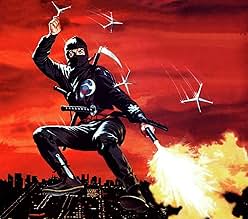

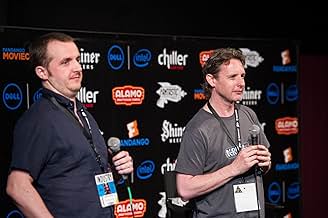
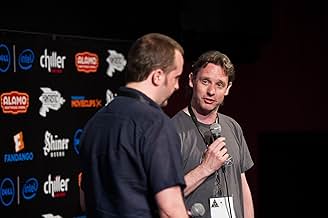
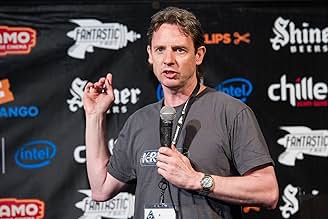

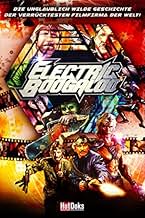
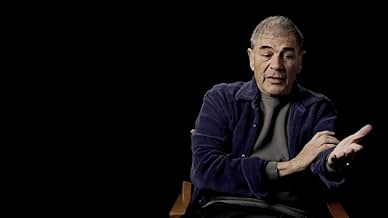

















![[REC] 4: Apocalypse](https://m.media-amazon.com/images/M/MV5BOTU3OTU2ODc5MF5BMl5BanBnXkFtZTgwNjY3MDY2MzE@._V1_QL75_UX140_CR0)







